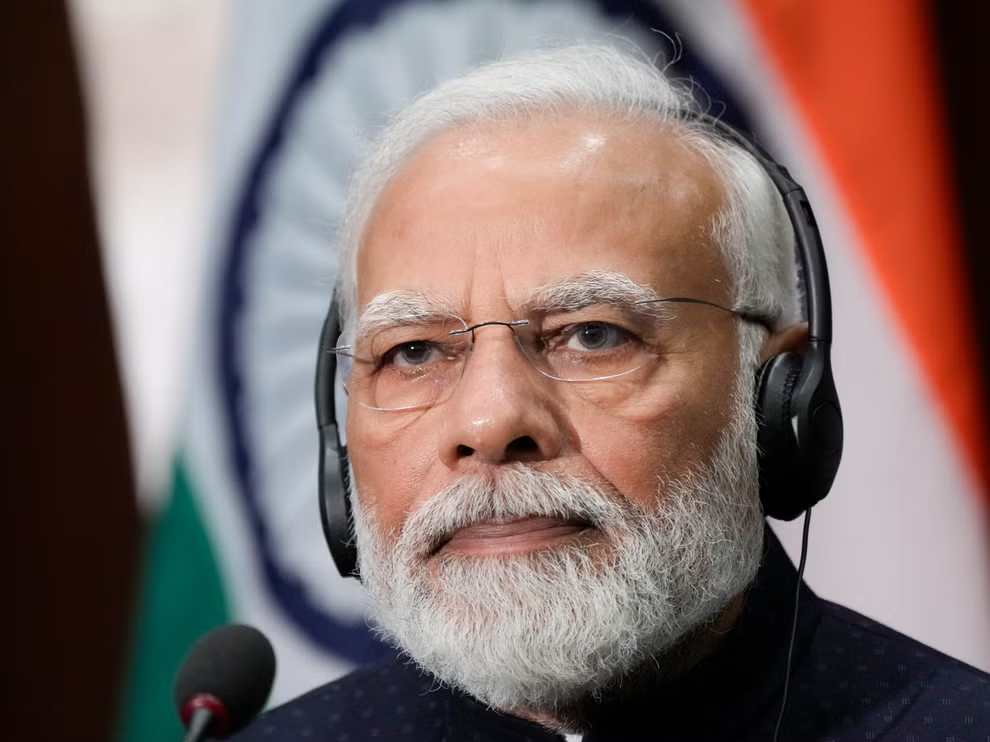
WE are not surprised when religious zealots in some benighted part of the American heartland ban the teaching of evolution in the local school, but what could have possessed the national government of a grown-up country like India to do the same thing?
The National Council of Educational Research and Training, which develops the Indian school curriculum and textbooks, did not stop there. It also ended any mention of the periodic table in the textbooks (so much for chemistry), and removed the chapters on democracy and diversity, political parties and challenges to democracy.
Why would the Indian government want the average Indian student to be ill-informed about science, democratic politics and respect for diversity? Well, that is exactly what Prime Minister Narendra Modi is aiming for.
The party he leads, the BJP (Bharatiya Janata Party — Indian People’s Party), seeks to transform India, the world’s most populous country, from a secular democracy where all religious and ethnic groups enjoy equal rights to a Hindu nationalist state where the various religious minorities are second-class citizens.
This would seem to be a quite feasible project, since 80% of the population is Hindu and the minorities are quite divided: mostly Muslims, but also Christians, Sikhs, Buddhists and Jains. But it is not that easy at all, because India has been a fully functional democracy for 76 years, and a lot of people (including many Hindus) want it to stay that way.
In fact, it is a monumental task to turn India into a “soft” dictatorship (like Turkey or Hungary) where the ruling party controls the media and the courts and always wins “free” elections. Modi, who honed his anti-Muslim tactics in his home state of Gujarat, waited a full term before he dropped the mask and went full Hindutva at the national level.
“Hindutva” (literally “Hindu-ness”) has been variously described as “cultural hegemony”, “ethnic absolutism”, and “almost fascist in the classical sense”. In Modi’s hands, it has been a political strategy that builds support for the BJP by demonising Muslims and encouraging attacks against them.
Once he won a second term by a landslide in 2019, Modi’s first move was to end the special status that Kashmir had enjoyed since independence as India’s only Muslim-majority state. It is now effectively occupied territory (one Indian army soldier for every seven inhabitants).
- Ex-Zim international Moor named in Ireland’s Test squads
- World View: India: Democracy at risk
- World View: Democracy and the courts
- Raj Modi: The man with a quiet presence
Keep Reading
Then he announced a new “National Register of Citizens” that would effectively deprive many Muslims of their Indian citizenship (although it has been met with such widespread protests that it is still in abeyance).
Indian courts in Modi-friendly states are banning documentaries that show the BJP’s complicity in anti-Muslim pogroms, and authorising police raids on the producers of programmes that criticise Modi’s personal involvement in them (including the BBC).
The leader of the opposition, Rahul Gandhi, has been found guilty of “defamation” by a court in Gujarat and expelled from parliament as a result.
Gandhi’s “crime” was to link Modi with two high-profile criminals in an election speech in 2019, asking rhetorically “Why is it that all thieves have Modi as a common name?” Ill-advised, yes, but hardly worth the two-year jail sentence that Gandhi now faces.
Bit by bit, and quite quickly now, the BJP is chipping away at the whole edifice of rights and rules that make India a flawed, but genuine democracy. Even the petty things, like expunging evolution from the school syllabus, serve this purpose.
“There is a movement away from rational thinking, against the enlightenment and Western ideas” in India, says historian Sucheta Mahajan of Jawaharlal Nehru University. Evolution conflicts with the Hindu creation stories that play a big part in BJP propaganda, so it has to go. Even science in general undermines the myths, so children must be protected from it.
This is not to say that Gujarat and Modi are just like Bavaria and Hitler, but there is a resonance there. That matters a lot, because by 2029, India will overtake Japan and Germany to become the third-largest economy in the world. But the game is not over yet.
Huge numbers of Indians reject the destruction of their democracy and they have a new weapon: a caste census. Bihar state (population 126 million) is holding one.
Caste is a rigid system of social stratification peculiar to Hindus, and the BJP is led by people of the Upper Castes. However, they depend on a coalition with the Other Backward Castes (OBCs), the middle level in the system, to win majorities. (The “Scheduled Castes”, formerly the “untouchables”, know their enemy and are not interested.)
If the census reveals (as it probably would) that the Upper Castes are only a tiny minority of Hindus, the BJP’s caste coalition might collapse, so it is desperately trying to block the census. It may fail and so might the BJP’s entire take-over strategy.
Dyer is a London-based independent journalist. His new book is titled The Shortest History of War.











